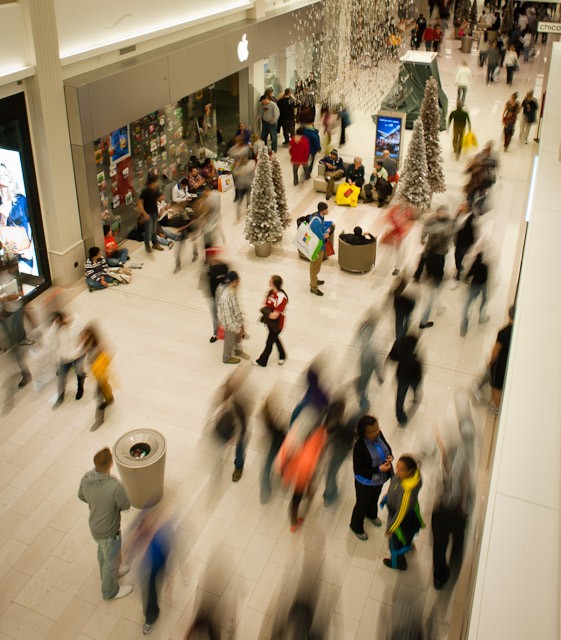University of Minnesota student group 365green promotes supporting small businesses, opting for a sustainable shipping process and gifting experiences this holiday season as supply chain issues persist following the COVID-19 pandemic.
With a change in supply chain stock, the environmental impact of the holiday season remains a concern to some people in regards to consistent landfill waste from excess products and gift returns.
365green is a sustainability club at the University with a mission to evoke direct change through the practice of environmentally friendly practices.
Megan Pangier, 365green president, takes on the holidays with a non-materialistic twist.
“I gift experiences instead of things,” Pangier said. “One year I made a video for my mom and this year I plan to update our family’s self portraits for my parents.”
Thrifting is gaining increasing popularity, but some stigmas still exist when it comes to gifting for others.
365green communication lead Isa Villalobos said the group’s favorite thrift store, “My Thrift,” is located in St. Paul. The store carries clothes, trinkets, dishes and CD’s; making it possible to find a gift for anyone, she said.
“I’ve been having conversations with adults who think thrifting is weird or hold stigmas around it to see where they are coming from,” Villalobos said. “Afterwards, I then explain to them where I’m at financially and my views on the environment.”
If you do choose to order from Amazon this holiday season, there are offers to opt for a more sustainable experience, however, Pangier and Villalobos still recommend buying from locally-owned, small businesses rather than big corporations.
“If you order from Amazon, there is a way to request less packaging, recycled materials to be used or even non-plastics,” Villalobos said.
Shoppers can also choose a later shipping date and to have all of their buys packed together to reduce the amount of cardboard Amazon uses for packaging, Pangier said.
Supply Chain and Operations Assistant Professor Necati Ertekin described these practices as a “win-win” strategy and by choosing to get your order at a later date, it allows retailers to send delivery trucks as full as possible as not only a sustainable shipping option, but also at a cheaper price for the consumer.
“The digital retail industry is super interesting, simply because the entire industry sits in the intersection of consumers and manufacturers,” Ertekin said. “It provides a lot of opportunities for many retailers to be more innovative and for consumers to learn from this industry.”
Additionally, with online shopping and delivery gaining popularity, major delivery carriers were forced to drop off customers (such as American Eagle) intentionally, according to Ertekin.
“If you look at the product portfolio, it’s no longer just fancy, efficient apparel coming from Brick-and-Mortar stores,” Ertekin said. “Demands moved from physical stores to online channels, creating problems within last mile delivery (UPS, FedEx carriers), where they were performing insufficiently.”
Although getting products from countries overseas has become less of a problem this holiday season, a shortage in delivery drivers is expected to affect product distribution times, Erterkin said.
Ertekin said the primary issue for retailers this season is the movement of product from ports to distribution centers and warehouses and eventually to the hands of customers. However, this is not a universal problem within retailers, as companies such as Macy’s are setting precautionary means by investing in data analytics to seek out potential mishaps without sacrificing prompt delivery times.
“For example if their ship has already arrived at the port and is number 50 in the line, they can immediately shift the ship to another port, changing their entire logistics accordingly to make sure that the product is still on the way to the warehouse,” Ertekin said.























AngerManagement
Dec 10, 2022 at 4:17 pm